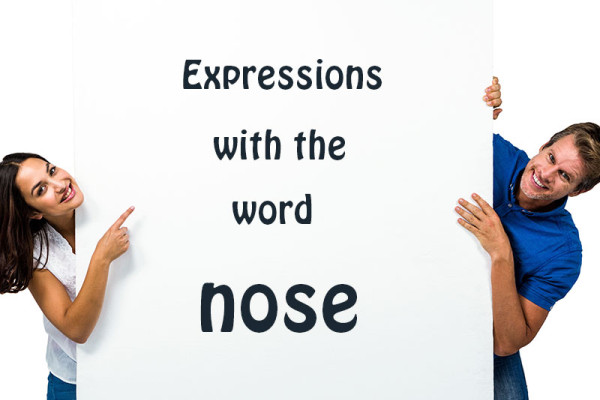¿Los False friends son amigos falsos?

No, los false friends no tienen nada que ver con amigos que son falsos, sino más bien con palabras inglesas que nos son conocidas por parecerse mucho al español, pero que no significan lo que creemos que significan. Por ejemplo, si un inglés te pregunta “How often do you hoover the carpet?”, no te está preguntando con qué frecuencia pasas la aspiradora por la carpeta, sino por la alfombra.
Os mostraremos 10 false friends muy comunes:
1. Constipated
- Good morning, I’m constipated”, have you got anything for that?
Buenos días, estoy estreñido, ¿tiene algo para eso?
- Well, this laxative is really effective.
Bueno, este laxante es muy efectivo.
- A laxative? No, I need some cough mixture.
¿Un laxante? No, yo necesito un jarabe para la tos.
- Oh, sorry! You’ve got a cold!
¡Oh, perdone! ¡Usted tiene un constipado!
2. Preservative
- Did you know that some preservatives are toxic?
¿Sabías que algunos conservantes son tóxicos?
- No way! ¡Preservatives can’t be toxic!
¡Venga ya! ¡Los preservativos no pueden ser tóxicos!
- Of course, they are chemical substances. They put them in the food we eat.
Claro que sí. Son sustancias químicas. Las ponen en la comida que comemos.
- Oh, you mean “conservantes”!
¡Oh, quieres decir conservantes!
3. Remove
- Can I have a spoon to remove my coffee?
¿Me das una cuchara para sacar el café?
- Why do you need to remove your coffee? Is there anything in it?
¿Por qué necesitas sacar el café? ¿Hay algo dentro?
- No, I need to dissolve the sugar.
No, necesito disolver el azúcar.
- Then, you need the spoon to stir your coffee.
Entonces necesitas la cuchara para remover el café.
4. Record
- Do you record where you put the car keys?
¿Grabas dónde pones las llaves del coche?
- Why should I record that?
¿Por qué debería grabar eso?
- I need the keys and I can’t find them.
Necesito las llaves y no las encuentro.
- Oh, you are asking me if I remember where I put the car keys.
Oh, me estás preguntando si recuerdo dónde puse las llaves del coche.
5. Exit
- I wish you exit in your new project.
Deseo que te vayas con tu nuevo proyecto.
- If you don’t like my project you can tell me without being rude.
Si no te gusta mi proyecto, puedes decírmelo sin ser grosero.
- I do like your project and I hope it goes well.
Claro que me gusta tu proyecto y espero que vaya bien.
- So you wanted to wish me success.
Así que querías desearme éxito.
6. Embarrassed
- I have something to tell you. I’m embarrassed.
Tengo algo que decirte. Estoy avergonzada.
- Why are you embarrassed? What have you done?
¿Por qué estás avergonzada? ¿Qué es lo que has hecho?
- You don’t understand. You are going to be a father.
No lo entiendes. Vas a ser padre.
- You are pregnant!
¡Estás embarazada!
7. Parents
- I have some parents in Brazil, some in Australia and some in Japan.
Tengo padres en Brasil, algunos en Australia y algunos en Japón.
- How strange! How many mums and dads have you got?
¡Qué raro! ¿Cuántas madres y padres tienes?
- A mum and a dad. I’m talking about uncles, aunts, cousins…
Una madre y un padre. Estoy hablando de tíos, tías, primos...
- You mean your relatives!
¡Quieres decir tus parientes!
8. Notice
- Have you read the notices?
¿Has leído los avisos?
- Is there a notice on the door? I haven’t seen it.
¿Hay un aviso en la puerta? No lo he visto.
- No, in the newspaper, about the earthquake in Italy.
No, en el periódico, sobre el terremoto en Italia.
- Oh, that piece of news! I haven’t read it but I’ve heard it on the radio.
¡Oh, esa noticia! No la he leído pero la he oído en la radio.
9. Lentils
- Harry, come to the bathroom! I’ve lost my lentils!
¡Harry, ven al baño! ¡He perdido las lentejas!
- Your lentils? Are you cooking in the bathroom?
¿Las lentejas? ¿Estás cocinando en el baño?
- No, my lentils. I can’t see without them!
No, mis lentejas. ¿No veo sin ellas!
- You’ve lost your lenses darling, not your lentils.
Has perdido las lentillas cariño, no las lentejas.
10. Avocado
- You are under arrest. You have the right to remain silent.
Queda usted arrestado. Tiene derecho a permanecer en silencio.
- I want an avocado
Quiero un aguacate.
- If you are hungry, you’ll get something to eat at the police station.
Si tiene hambre, ya le darán algo de comer en la comisaria.
- No, an avocado, a person that can handle my case.
No, un aguacate, una persona que lleve mi caso.
- What you need is a lawyer.
Lo que necesitas es un abogado.
Os hemos dejado una muestra de false friends, si queréis saber más sobre ellos os recomendamos que entréis en lewolang, un curso online donde encontrarás entre otros muchos temas, uno dedicado a los false friends. Pruébalo gratis durante 10 días.
Artículos relacionados
Añadir comentario















